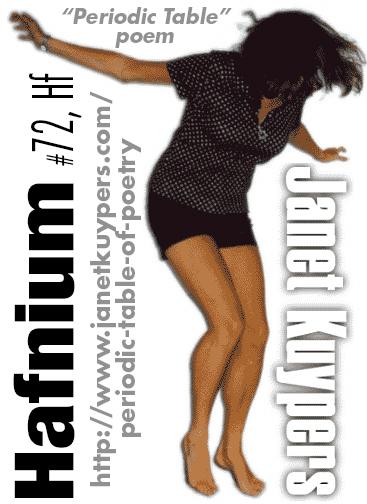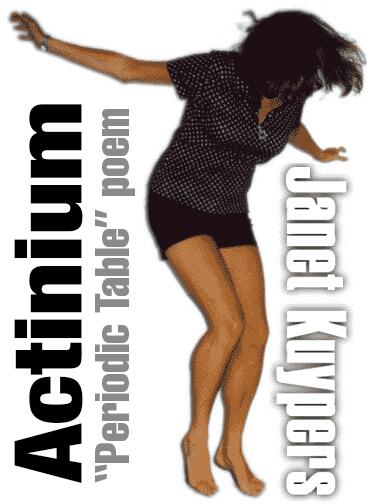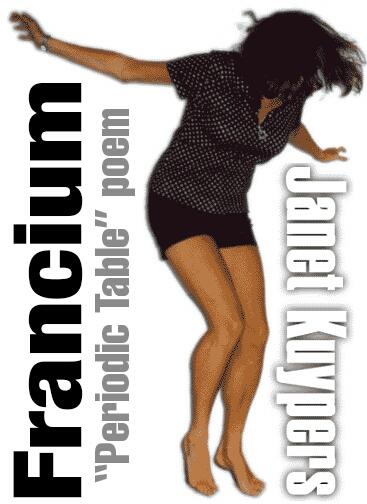Hafnium
Janet Kuypers

(poem from the “Periodic Table of Poetry” series, #72, Hf)
6/27/14
I heard that the element Hafnium
is named after the literal Latin word hafnium,
which is Latin for Copenhagen,
the capital of Denmark.
And you know, I’ve been to Copenhagen,
and the one touristy thing we had to do
was go to the waterfront
to see the legendary statue
of the Mermaid on the rock,
and photograph it like every foreigner
before we left town.
So we walked to the water,
looked at the statue.
Not really sure
what’s so amazing about it;
it’s not that big,
I don’t even know the story behind it.
But everyone new to Copenhagen
should, for some reason,
check it out.
And the more I thought about it,
the more I realized that the element Hafnium
(named after the city where it was first isolated)
had a lot in common with that mermaid.
Because at first impression
(and when it was first discovered),
the element doesn’t seem to serve much of a purpose.
Good thing, I suppose,
since it seems so rare
on this planet…
But as scientists looked at Hafnium more,
they realized it can form super-alloys,
which withstand very high temperatures
(which is great for parts for space vehicles),
Hafnium carbide has the highest melting point
of just two elements (and a Tungsten carbide
with Hafnium has the highest melting point).
But it’s scarcity makes Hafnium expensive –
because I heard that nuclear power plants
can pay a million dollars
just for the neutron absorbing Hafnium rods
So I guess it would make sense
why scientists consider Hafnium
as special as that little mermaid
at Copenhagen’s water’s edge.
Because things may seen benign at first,
but only when you search deeply
do you find their true value and beauty.


